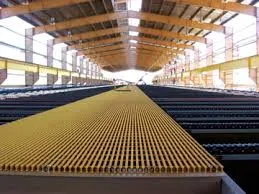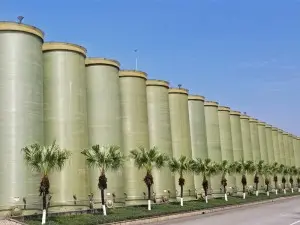
-
 Afrikaans
Afrikaans -
 Albanian
Albanian -
 Amharic
Amharic -
 Arabic
Arabic -
 Armenian
Armenian -
 Azerbaijani
Azerbaijani -
 Basque
Basque -
 Belarusian
Belarusian -
 Bengali
Bengali -
 Bosnian
Bosnian -
 Bulgarian
Bulgarian -
 Catalan
Catalan -
 Cebuano
Cebuano -
 China
China -
 China (Taiwan)
China (Taiwan) -
 Corsican
Corsican -
 Croatian
Croatian -
 Czech
Czech -
 Danish
Danish -
 Dutch
Dutch -
 English
English -
 Esperanto
Esperanto -
 Estonian
Estonian -
 Finnish
Finnish -
 French
French -
 Frisian
Frisian -
 Galician
Galician -
 Georgian
Georgian -
 German
German -
 Greek
Greek -
 Gujarati
Gujarati -
 Haitian Creole
Haitian Creole -
 hausa
hausa -
 hawaiian
hawaiian -
 Hebrew
Hebrew -
 Hindi
Hindi -
 Miao
Miao -
 Hungarian
Hungarian -
 Icelandic
Icelandic -
 igbo
igbo -
 Indonesian
Indonesian -
 irish
irish -
 Italian
Italian -
 Japanese
Japanese -
 Javanese
Javanese -
 Kannada
Kannada -
 kazakh
kazakh -
 Khmer
Khmer -
 Rwandese
Rwandese -
 Korean
Korean -
 Kurdish
Kurdish -
 Kyrgyz
Kyrgyz -
 Lao
Lao -
 Latin
Latin -
 Latvian
Latvian -
 Lithuanian
Lithuanian -
 Luxembourgish
Luxembourgish -
 Macedonian
Macedonian -
 Malgashi
Malgashi -
 Malay
Malay -
 Malayalam
Malayalam -
 Maltese
Maltese -
 Maori
Maori -
 Marathi
Marathi -
 Mongolian
Mongolian -
 Myanmar
Myanmar -
 Nepali
Nepali -
 Norwegian
Norwegian -
 Norwegian
Norwegian -
 Occitan
Occitan -
 Pashto
Pashto -
 Persian
Persian -
 Polish
Polish -
 Portuguese
Portuguese -
 Punjabi
Punjabi -
 Romanian
Romanian -
 Russian
Russian -
 Samoan
Samoan -
 Scottish Gaelic
Scottish Gaelic -
 Serbian
Serbian -
 Sesotho
Sesotho -
 Shona
Shona -
 Sindhi
Sindhi -
 Sinhala
Sinhala -
 Slovak
Slovak -
 Slovenian
Slovenian -
 Somali
Somali -
 Spanish
Spanish -
 Sundanese
Sundanese -
 Swahili
Swahili -
 Swedish
Swedish -
 Tagalog
Tagalog -
 Tajik
Tajik -
 Tamil
Tamil -
 Tatar
Tatar -
 Telugu
Telugu -
 Thai
Thai -
 Turkish
Turkish -
 Turkmen
Turkmen -
 Ukrainian
Ukrainian -
 Urdu
Urdu -
 Uighur
Uighur -
 Uzbek
Uzbek -
 Vietnamese
Vietnamese -
 Welsh
Welsh -
 Bantu
Bantu -
 Yiddish
Yiddish -
 Yoruba
Yoruba -
 Zulu
Zulu
Jan . 13, 2025 18:09
Back to list
fiberglass insulation tank
Fiberglass insulation tanks have emerged as a crucial component in industries requiring efficient thermal management and energy conservation. These tanks blend innovative engineering with practical applications, making them invaluable in sectors like chemical storage, water treatment, agricultural operations, and more. Understanding their benefits goes beyond mere product features; it requires insight into their functional capabilities and strategic advantages.
From a sustainability perspective, fiberglass insulation tanks hold significant appeal. They are less energy-intensive to produce compared to traditional tank materials, reducing the carbon footprint of their manufacture. This aligns with global trends and demands for eco-friendly industrial solutions, offering organizations a chance to contribute positively to environmental initiatives. Practical insights from industry experts underscore the versatility of these tanks in diverse applications. For example, in agricultural settings, fiberglass tanks serve not only for water storage but also in fertilizer and pesticide containment, demonstrating adaptability to variable operational needs. Similarly, in industrial settings, these tanks can be optimized with specialized linings for enhanced chemical resistance, showcasing customization potential to meet specific operational requirements. The trustworthiness of fiberglass insulation tanks is bolstered by testimonials from seasoned professionals who have witnessed first-hand their performance efficiencies. Case studies reveal significant reductions in energy bills and maintenance costs as direct outcomes of integrating fiberglass solutions. Such empirical evidence offers stakeholders a reliable foundation for decision-making, minimizing investment risks and maximizing returns. In-depth expertise underscores the strategic capabilities of fiberglass insulation tanks. Their role extends beyond mere containment, serving as vital components in integrated systems designed to optimize overall operational efficiency. Professional insights into material science advancements and evolving insulation technologies provide a comprehensive understanding of how fiberglass tanks continue to evolve, catering to modern industrial demands. In summary, fiberglass insulation tanks embody an intersection of innovative material science and practical utility. Their numerous advantages in terms of thermal efficiency, durability, eco-friendliness, and cost-effectiveness position them as indispensable assets in diverse industrial applications. As businesses seek to enhance operational efficiency and sustainability, these tanks offer a pathway to achieving long-term success and competitiveness in the market landscape.


From a sustainability perspective, fiberglass insulation tanks hold significant appeal. They are less energy-intensive to produce compared to traditional tank materials, reducing the carbon footprint of their manufacture. This aligns with global trends and demands for eco-friendly industrial solutions, offering organizations a chance to contribute positively to environmental initiatives. Practical insights from industry experts underscore the versatility of these tanks in diverse applications. For example, in agricultural settings, fiberglass tanks serve not only for water storage but also in fertilizer and pesticide containment, demonstrating adaptability to variable operational needs. Similarly, in industrial settings, these tanks can be optimized with specialized linings for enhanced chemical resistance, showcasing customization potential to meet specific operational requirements. The trustworthiness of fiberglass insulation tanks is bolstered by testimonials from seasoned professionals who have witnessed first-hand their performance efficiencies. Case studies reveal significant reductions in energy bills and maintenance costs as direct outcomes of integrating fiberglass solutions. Such empirical evidence offers stakeholders a reliable foundation for decision-making, minimizing investment risks and maximizing returns. In-depth expertise underscores the strategic capabilities of fiberglass insulation tanks. Their role extends beyond mere containment, serving as vital components in integrated systems designed to optimize overall operational efficiency. Professional insights into material science advancements and evolving insulation technologies provide a comprehensive understanding of how fiberglass tanks continue to evolve, catering to modern industrial demands. In summary, fiberglass insulation tanks embody an intersection of innovative material science and practical utility. Their numerous advantages in terms of thermal efficiency, durability, eco-friendliness, and cost-effectiveness position them as indispensable assets in diverse industrial applications. As businesses seek to enhance operational efficiency and sustainability, these tanks offer a pathway to achieving long-term success and competitiveness in the market landscape.
Next:
Related Products









